Challenges and opportunities in Iran-Pakistan strategic plan
Iran and Pakistan, as two neighboring and influential countries in the West Asian region, share common borders, religious and cultural commonalities and common customs, and due to their proximity, trade costs between them are very low compared to other countries.
On Thursday, they signed a five-year strategic plan for commercial cooperation as Iranian Foreign Minister Hossein Amir-Abdollahian met Pakistani leaders in Islamabad during a three-day visit which he said would open a “new chapter” in their cooperation.
Home to 230 million people as the second largest Muslim country after Indonesia, Pakistan is potentially one of the best export destinations for Iranian goods and services.
The unique geographical location of Iran gives it a special advantage for exports of goods and services. Hence, the acceleration of foreign investments and export of goods would lead to mutual benefits for Iran and international economic actors.
In this regard, attention should be paid to the consumption market of the neighboring countries and Pakistan, because of its special room for Iranian goods and services, should be a priority.
While Iran’s main export items to most trading partners are petrochemicals, a diverse volume of goods is exported to Pakistan, which allows the two countries to raise trade to new record highs.
They have already doubled the volume of trade to $2.4 billion in recent years, but in view of the existing capacities, this increase is not satisfactory, Amir-Abdollahian said.
“We want to witness the expansion of bilateral cooperation as much as possible in the coming years,” he told his Pakistani counterpart Bilawal Bhutto-Zardari.
Pakistani and Iranian markets are complementary. Pakistan has a developing economy with an increasing need for energy resources, and Iran is one of the richest countries in the world in terms of energy resources. Also, Pakistan can meet some of Iran's needs, especially in the agricultural sector.
Chambers of commerce, unions and organizations have a very large role in Pakistan’s economy, where the government only regulates and supervises it without trying to interfere in it.
Pakistan has been a World Trade Organization (WTO) member since 1995 and a member of General Agreement on Tariffs and Trade (GATT) which covers trade in industrial and agricultural goods, with WTO agreements at its heart.
The country has free trade agreements with Sri Lanka, China, and Malaysia and is also a part of the South Asian Association for Regional Cooperation (SAARC).
As a result, entry into Pakistan’s competitive market for non-WTO members such as Iran is not without challenges.
Another challenge is the smuggling of goods, especially fuel, due to long and relatively insecure borders where terrorist groups chiefly operate from their lairs in Pakistan.
Raw selling, especially of hides, dates and legumes, also chips away at earnings, while money transfer issues and banking complications related to sanctions on Tehran are a constant headache.
Barter trade, border markets, use of national currencies
Earlier this year, Pakistan authorized barter trade with Iran, Afghanistan and Russia on specific goods, including petroleum and gas, to bypass Western sanctions on those countries and ease pressure on its declining foreign exchange reserves.
The country is scrambling to manage a balance of payments crisis and rein in skyrocketing inflation.
The barter trade mechanism lists 26 commodities that Pakistani state and privately owned entities can export to Afghan, Iranian and Russian markets. In exchange, they can import crude oil, liquid natural gas, liquid propane gas, chemical products, fertilizers, fruits, wheat, industrial machinery and vegetables from the three countries.
One of the recent developments in relations between Iran and Pakistan is the reopening of crossing points to facilitate duty-free trade between border residents of the two neighboring countries.
These crossing points greatly reduce the transit time and contribute towards economic integration of the region.
Moreover, the two countries’ traders are seriously demanding further facilitation of payment systems and also calling for the use of national currencies in their exchanges.
Rice traders in Pakistan have suggested that the government establish a strong banking system with Iran or implement a special transport system to increase trade, especially rice exports.
Facilitating transit trade is one of the potential capacities for the development of regional cooperation.
Iran's interest in the 3,000-km China Pakistan Economic Corridor and the positive view of Pakistanis on the 25-year strategic cooperation agreement between Iran and China is also a basis for regional integration and connectivity.
In 2020, Turkey, Iran and Pakistan revived a transnational rail service linking Istanbul, Tehran and Islamabad. The ITI railroad is expected to enhance connectivity with China's Belt and Road Initiative (BRI) by providing a rail connection between China and Turkey.
Gas pipeline project in limbo
On Thursday, Amir-Abdollahian told Pakistan’s Senate chairman Muhammad Sadiq Sanjrani that Tehran sees no restrictions on an all-out expansion of relations with Islamabad.
He called the gas pipeline project for transfer of Iranian gas to Pakistan as one of the important issues of cooperation between the two countries.
“We do believe that the completion of the Iran-Pakistan gas pipeline is definitely going to serve the national interests of our two countries,” Amir-Abdollahian said.
Iran has already invested $2 billion in the pipeline on its side of the border. The project, launched in 2013, required Pakistan to finish the construction of the pipeline on its territory by the end of 2014, but it has been on hold without explanation.
Sanctions and pressures from the US and other countries are seen at the bottom of the standstill.
Observers believe Pakistan is set to come under further pressure if more meaningful trade ties are forged between Tehran and Islamabad.
However, the changing dynamics in geopolitical relations of the region where the US clout is receding fast and the expanding field for commercial and economic cooperation hold the trump card, raising hopes that the emerging partnership will stand the test of the time.
Iran does not rule out pulling out of 2026 World Cup as 'spiteful' US launches aggression
Iranian Armed Forces say no missile fired from Iran into Turkey
Iraqi Islamic Resistance warns European nations against entering into war with Iran
Schumer: 'Manic' Trump caused West Asia chaos, has 'zero' war plan
Araghchi warns Turkey, Iraq against border 'terror' activity amid US-Israeil aggression
UN experts condemn unlawful US-Israeli aggression against Iran
US war on Iran burns past $1bn in early days, with total projected to exceed $95bn
US officials warn of challenges posed by Iranian drones


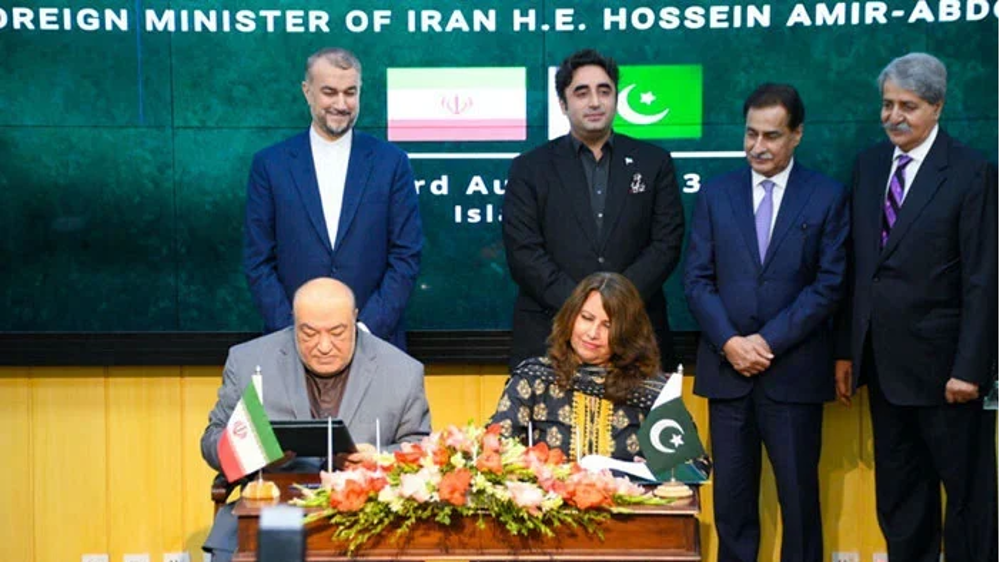
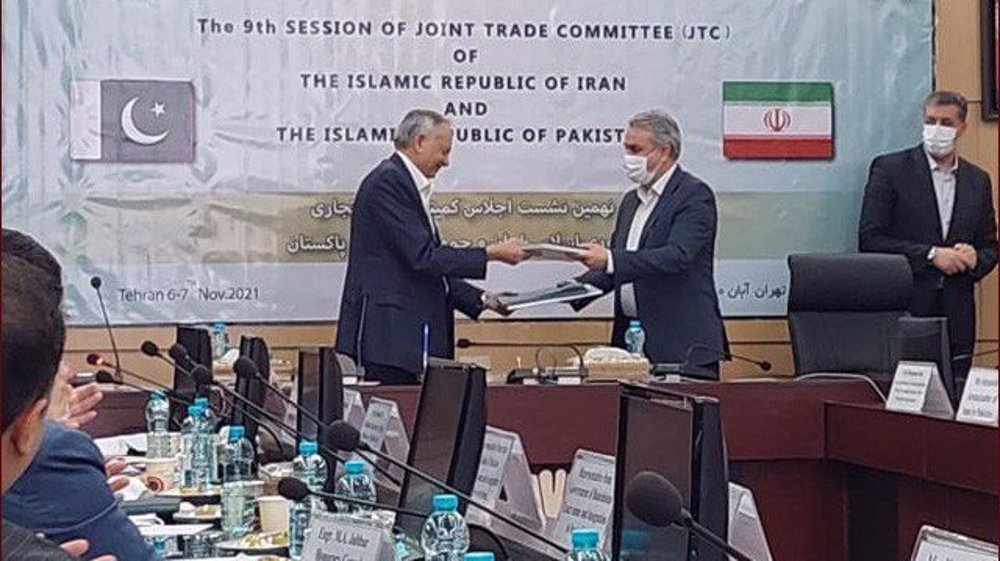
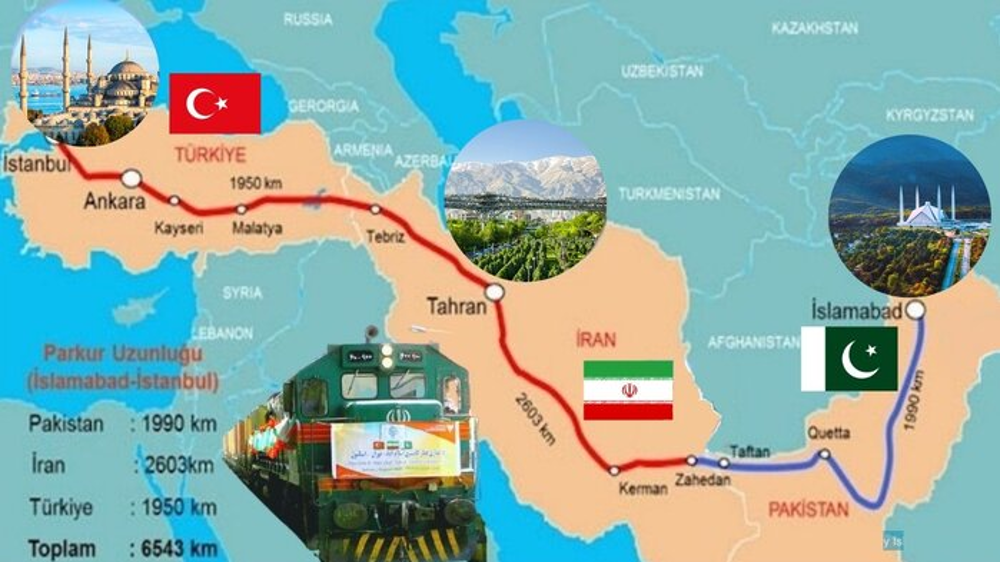
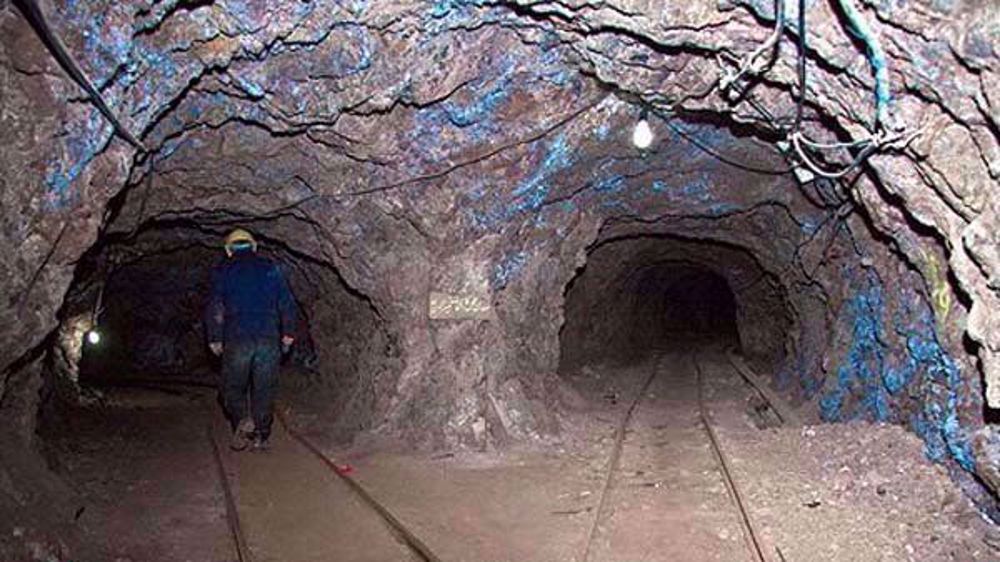
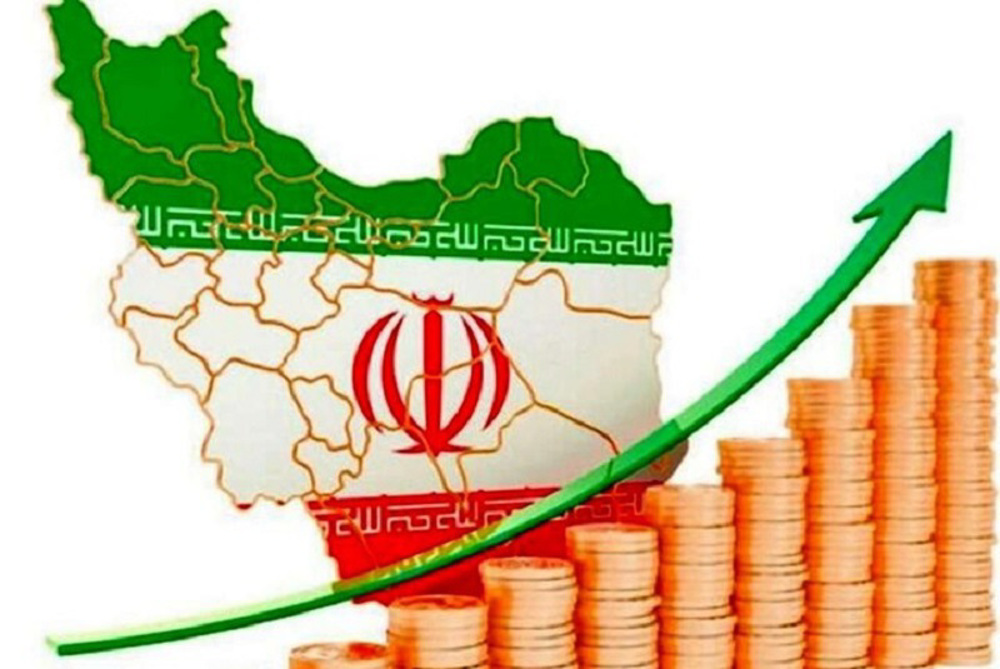
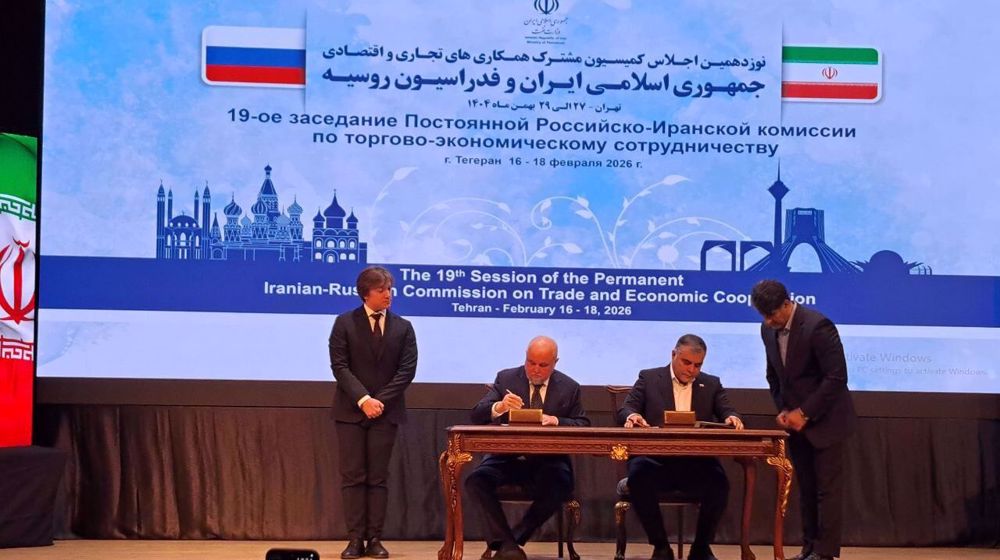




 This makes it easy to access the Press TV website
This makes it easy to access the Press TV website